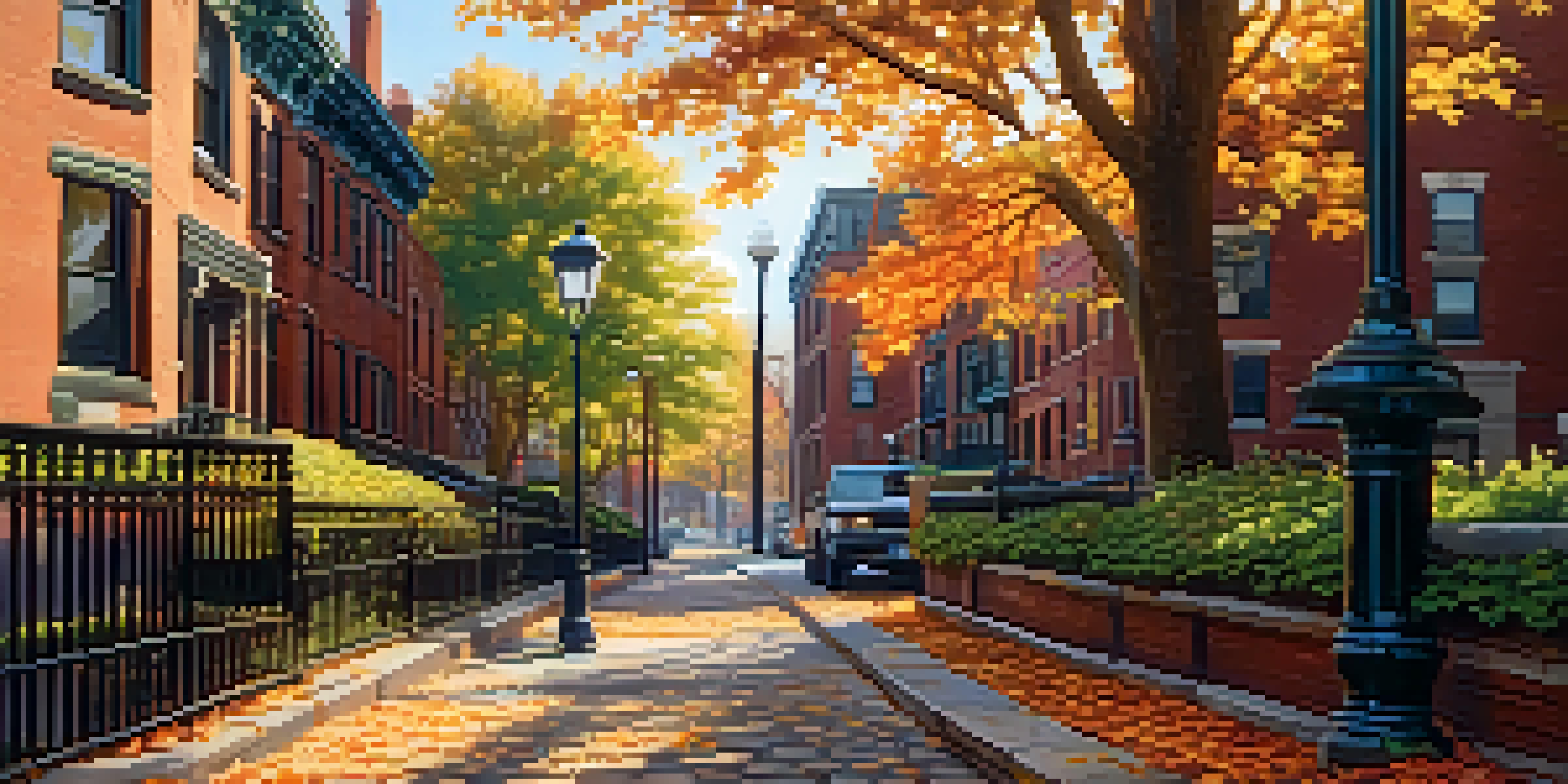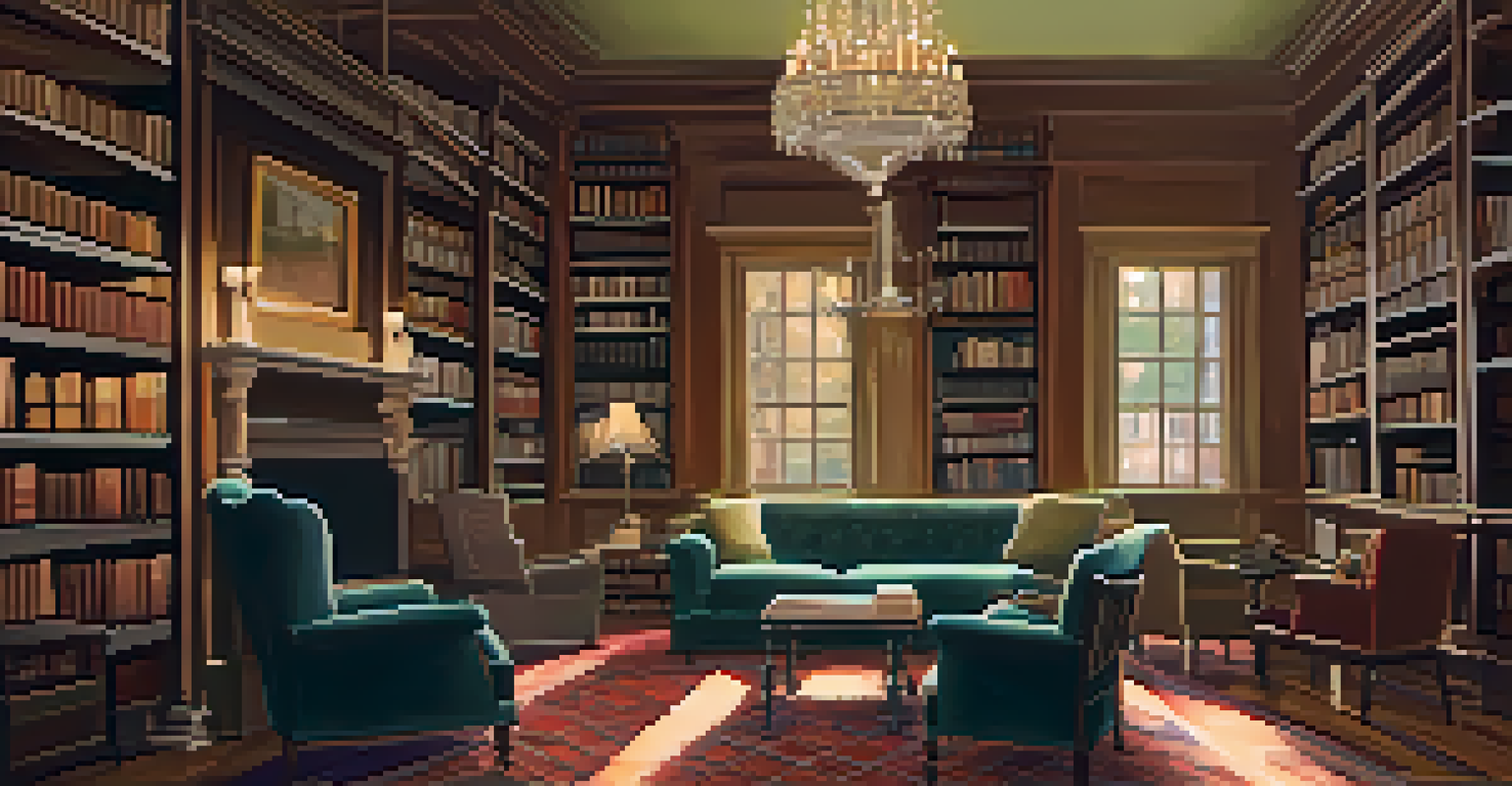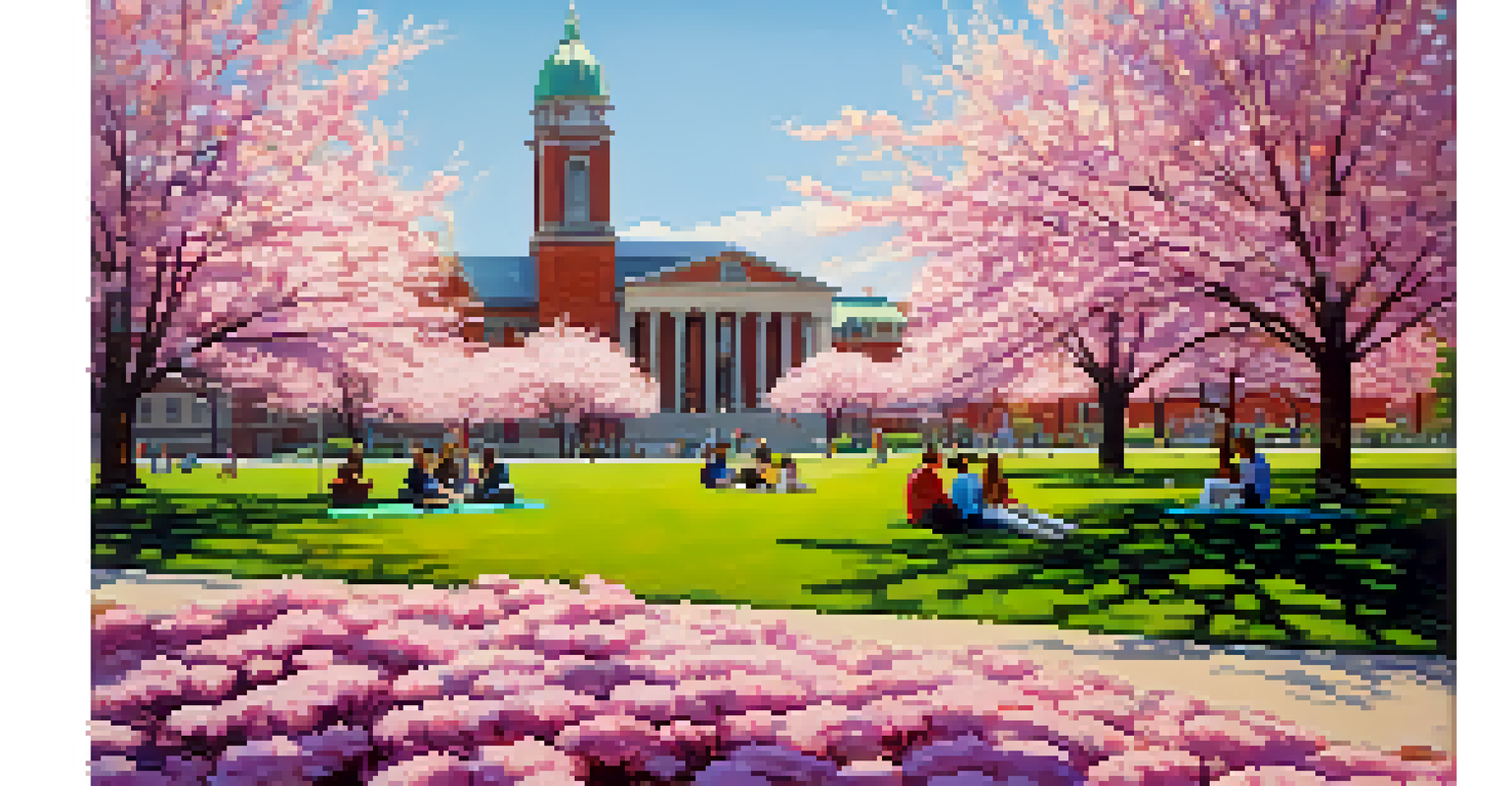The Role of Boston in Shaping American Literary Criticism

Introduction to Boston's Literary Heritage
Boston has long been a cornerstone of American literature, serving as a cradle for intellectual thought and artistic expression. The city’s rich cultural tapestry is woven with the threads of its literary giants, whose ideas have profoundly influenced the landscape of literary criticism. From the early days of transcendentalism to the modern era, Boston's literary scene has sparked discussions that resonate through time.
The world is but a canvas to the imagination.
In the 19th century, figures like Ralph Waldo Emerson and Henry David Thoreau emerged, advocating for a new paradigm in literary interpretation. Their emphasis on individual experience and intuition encouraged readers to engage deeply with texts, challenging traditional norms. This shift laid the groundwork for a more subjective approach to criticism, shaping how literature was understood and appreciated.
As we delve into Boston's literary heritage, we start to see how its unique blend of culture, education, and intellectual fervor created an environment ripe for literary innovation. The city's universities and literary salons provided platforms for budding critics and writers, leading to a vibrant discourse that would impact generations.
The Rise of Transcendentalism and Its Critics
Transcendentalism, a philosophical movement that emerged in the early 19th century, was rooted in Boston's intellectual soil. This movement emphasized the importance of intuition and the inherent goodness of people and nature, directly challenging the rigid conventions of the time. Writers like Emerson and Thoreau not only produced works that celebrated these ideals but also sparked critical dialogues that redefined literary evaluation.

Critics of transcendentalist thought, such as Edgar Allan Poe, emerged to present counterarguments, enriching the literary criticism landscape. Poe’s focus on the aesthetic and the emotional impact of literature encouraged a different lens through which to view literary works. This dynamic exchange of ideas contributed to a more nuanced understanding of literature, as critics began to engage with texts on multiple levels.
Boston: Cradle of Literary Thought
Boston has historically been a hub for literary innovation and criticism, influencing generations of writers and thinkers.
The contrast between transcendentalism and its critics highlights how Boston became a battleground for new ideas in literary criticism. As these debates unfolded, they not only shaped individual works but also influenced broader trends in American literature, fostering a culture of critical analysis that would endure.
The Impact of Boston's Publishing Industry
Boston's publishing industry has played a pivotal role in shaping American literary criticism. Throughout the 19th and 20th centuries, the city was home to influential publishers who championed new voices and ideas. These publishers provided platforms for authors and critics alike, facilitating discussions that would become integral to the evolution of literary standards.
In the long run, the sharpest weapon of all is a kind and gentle spirit.
Magazines and journals based in Boston, such as The Atlantic and The New England Review, became hotspots for literary criticism. They published essays and reviews that not only critiqued contemporary works but also explored broader literary movements. This proliferation of literary discourse helped establish Boston as a key player in the national conversation about literature and its significance.
As Boston's publishing scene flourished, it created a feedback loop where writers could receive immediate critical responses to their work. This interaction fostered a culture of accountability and growth in literary circles, encouraging critics to refine their approaches and engage with texts more thoughtfully.
Boston's Role in Promoting Diverse Voices
As the literary landscape in Boston evolved, so too did the recognition of diverse voices. The city served as a hub for marginalized writers and critics who sought to challenge the status quo. By embracing a wider range of perspectives, Boston became a crucial site for discussions about race, gender, and class in literature.
Writers like Zora Neale Hurston and Langston Hughes found their voices amplified in Boston's intellectual circles, contributing to the Harlem Renaissance and beyond. Their works prompted critics to reevaluate traditional literary canons and consider the importance of cultural context in literary analysis. This shift not only enriched American literature but also expanded the framework through which critics approached texts.
Diverse Voices Impacting Literature
The city has played a crucial role in amplifying marginalized voices, enriching the discourse around race, gender, and class in literature.
Moreover, the inclusion of diverse voices in literary criticism has led to a more comprehensive understanding of American literature's complexities. Boston's commitment to fostering these discussions has ensured that a multitude of narratives are recognized and valued, shaping the future of literary criticism.
The Influence of Boston's Academic Institutions
Boston's esteemed academic institutions, such as Harvard and Boston University, have been instrumental in shaping literary criticism. These universities have produced countless scholars who have contributed to the field, exploring various methodologies and frameworks for analyzing literature. Their research and teaching have nurtured generations of critics who continue to push the boundaries of literary interpretation.
Courses in literature and criticism often highlight the importance of historical context, authorial intent, and reader response, encouraging students to engage critically with texts. This academic rigor has fostered a culture of inquiry that extends beyond the classroom, influencing public discourse around literature. As students graduate and enter the literary world, they bring fresh perspectives that continue to evolve the conversation around literary analysis.
Additionally, the collaboration between scholars and local writers has created a vibrant literary community in Boston. Workshops, lectures, and symposiums offer spaces for dialogue and critique, ensuring that the city's literary criticism remains dynamic and relevant.
Notable Critics and Their Contributions
Throughout its literary history, Boston has been home to numerous influential critics who have shaped American literary thought. Figures such as F. O. Matthiessen and Lionel Trilling are just a few examples of critics whose work has had a lasting impact. Their insights into literature not only provided valuable interpretations but also opened the door for new discussions about the role of literature in society.
Matthiessen's focus on the American literary canon highlighted the importance of understanding cultural and historical contexts. His criticism encouraged readers to appreciate the nuances of American literature, leading to a deeper engagement with texts. Similarly, Trilling’s emphasis on the moral dimensions of literature pushed critics to consider the ethical implications of literary works.
Academic Influence on Criticism
Boston's prestigious universities have nurtured a culture of literary inquiry, producing scholars who continuously reshape the field of literary criticism.
The contributions of these critics have helped foster a rich environment for literary criticism in Boston, where new ideas can flourish. As we explore their legacies, we see how their work continues to inspire contemporary critics and writers alike.
Conclusion: Boston's Lasting Legacy in Literary Criticism
Boston's role in shaping American literary criticism cannot be overstated. From its early literary giants to its thriving academic institutions, the city has fostered a culture of critical thought and analysis that continues to influence how literature is perceived today. The debates and discussions that have emerged from Boston's literary scene have enriched the field and created pathways for new voices to be heard.
As we reflect on Boston's literary heritage, it becomes clear that the city's commitment to intellectual exploration and diversity has paved the way for a more inclusive understanding of literature. The ongoing dialogues within its literary community ensure that critical analysis remains vibrant and relevant in a rapidly changing world.

Ultimately, Boston's legacy in literary criticism is one of innovation and inclusivity, reminding us that the conversation around literature is ever-evolving. As we look to the future, the lessons learned from Boston's literary history will undoubtedly continue to shape the way we engage with literature and its criticism.